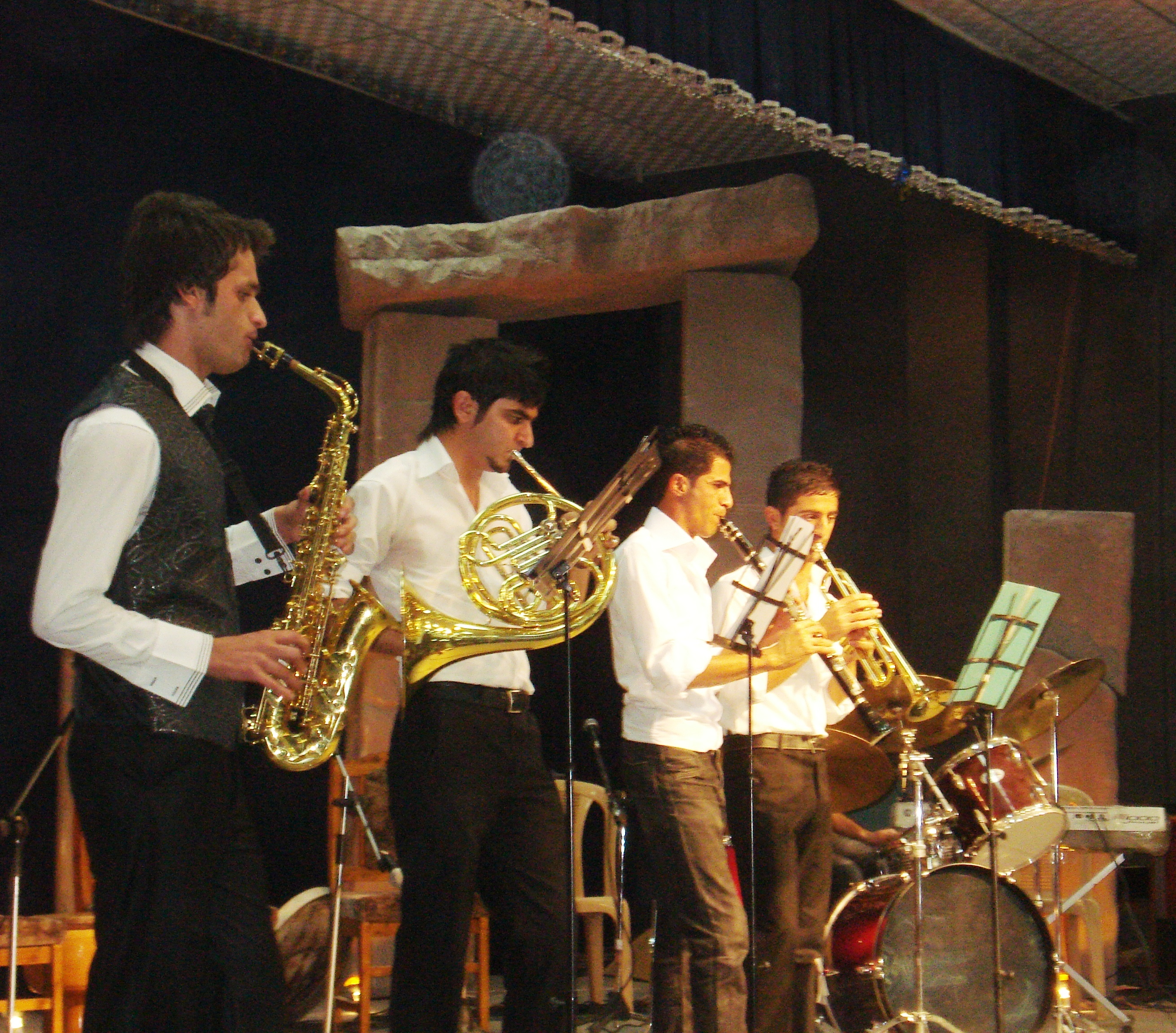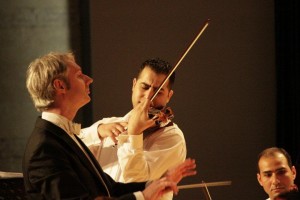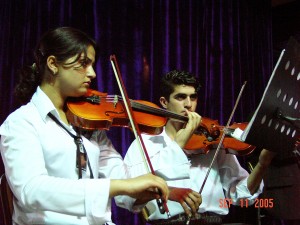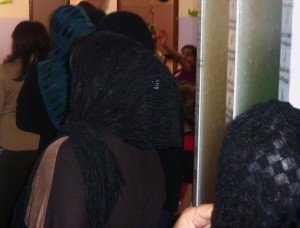Search Results for Tag: Iraq
Does less knowledge mean more comfort?
The recent history of education in Iraq is full of ups and downs, and illiteracy, especially for women, remains a problem.
I’d like to imagine seeing life and the world like through the eyes of an uneducated person. But I think this is much harder than imagining it through a genius’ eyes. I know so many uneducated people – the only thing they can read and understand is the clock. I wonder how they can use mobile phones…? They can use their contacts to dial, and they seem to know who is calling them! Maybe after lots of mistakes, they just figure out how to use their phones. In fact, it could even be a kind of adventure for them!
![]() read more
read more
An interview with conductor Paul MacAlindin
As I promised in my last entry, I did an interview over the Internet with NYOI’s musical director Paul MacAlindin, from Scotland and now living in Cologne, Germany.
– Mr. MacAlindin, how has the NYOI’s music improved academically since the orchestra’s founding?
![]() read more
read more
Growing acceptance for music in Iraq
In my last entry, I talked about the problems in Iraq’s fine arts institutes. In the last decades in Kurdistan, I think people have come to a better understanding of art in general – and music specifically – but this is not true in every area of my country. Some families do not allow their girls to study music – or sometimes even their boys – because of religious beliefs or because they think it’s inappropriate to make music. You’ll find this view mostly among people who live in the countryside but also among people who have left their villages for small towns or cities or, finally, those with very conservative minds. I know a famous Kurdish musician who studied music for five years away from his hometown without letting his father know what he was studying there. It was only after he graduated that his father found out – otherwise he would have stopped his son’s studies.
![]() read more
read more
Art for art’s sake in Iraq’s colleges?
Iraq’s fine arts institutes and colleges have made good progress in producing young artists in every creative field, but there are many issues still to talk about, and many things need to be changed in the system. I want to talk about the system in general in this post and go into more personal experiences in my next post.
I went to a fine arts institute, for which students in Iraq are eligible after finishing secondary school. In my experience, if you are interested in music, you should get started with it at a very early age – maybe between 3-5. Then you can learn to play naturally, and a similar argument could be made for other artistic fields.
![]() read more
read more
Glimpses into three women’s lives
I wanted to write about women in Iraq this weekend, so I decided to meet with some from different walks of life. That way I could have a better sense of what females are feeling and thinking about in life and how much freedom they feel like they have. Now I want to describe some of the highlights.
![]() read more
read more
Squeezing women’s freedoms as they grow up
In my experience in Iraq, the opportunities open to the genders differ according to social setting, age, geographical area and religious believes. We have equality more or less during early childhood, but you still see some differences in how boys and girls are treated.
I think that the opportunities open to males are not limited. They have choices from childhood onward, and they are even allowed to bend the rules. But females are always limited in the chances they have, specifically starting around age 14. Women have to struggle to get their own rights and freedoms, and many of them have sacrificed themselves to provide the freedoms others have today.
![]() read more
read more
Strokes of luck

Each year, students at the Ranya Institute's festival show off what they can do
I graduated from the Music Department at the Ranya Institute of Fine Arts in June 2008. Of course, I was happy to be done and excited because I thought that I had a job lined up for right afterward. I did everything necessary and met the requirements for a position teaching in a primary school. But it turned out that we recent graduates were unlucky – and not just in my field. No one was finding jobs in Iraq.
![]() read more
read more
Hope springs eternal
In my country, it should really be the case that the education process reflects individual perspectives as well as developments throughout the world. However, we have a lot of problems there. Until recently, Iraq’s dictatorial government, like all the other parts of life here in Iraq, were big obstacles to education. Schools were prevented from developing and kept circling around a limited range of ideas.
![]() read more
read more











Feedback